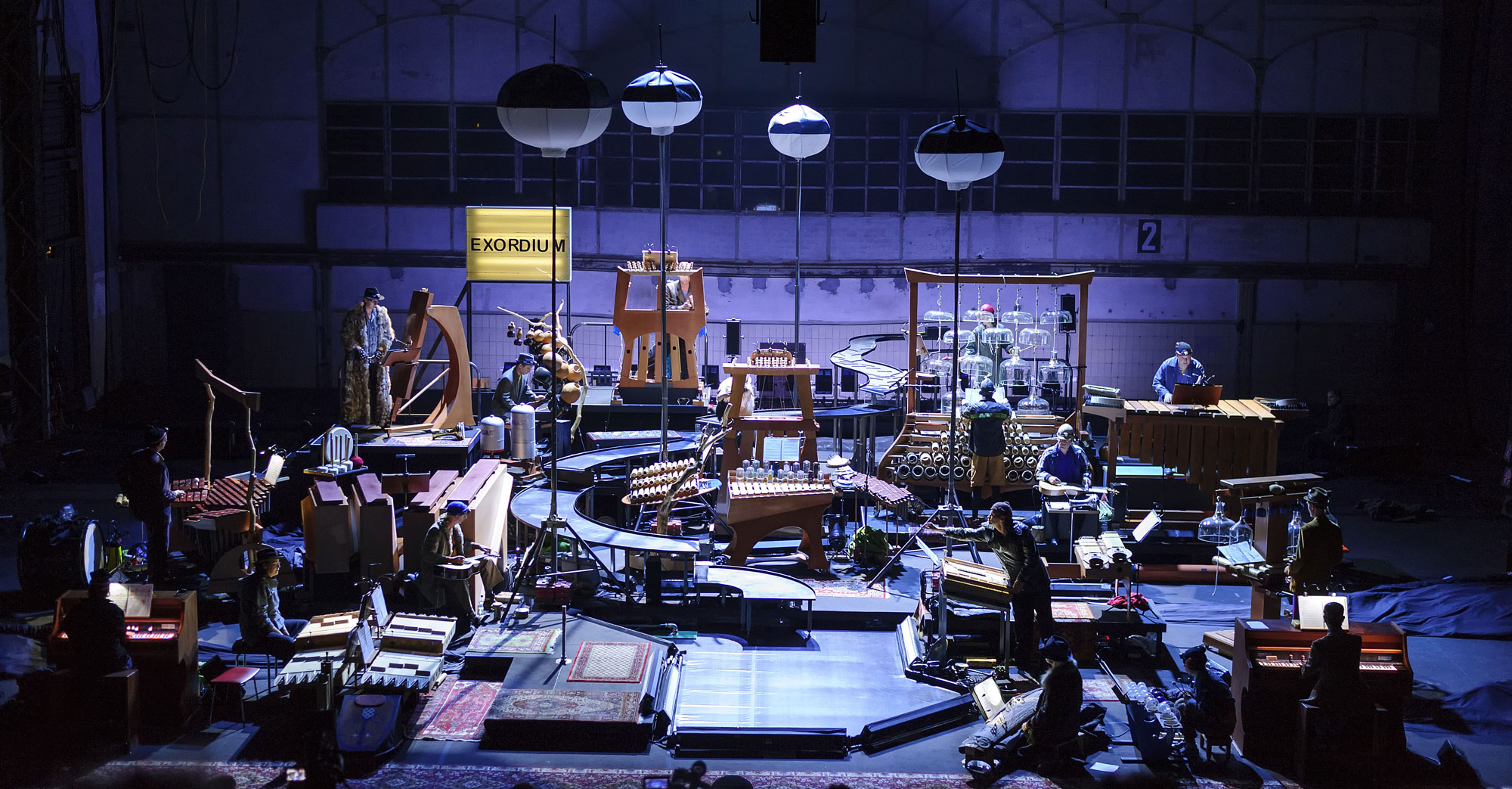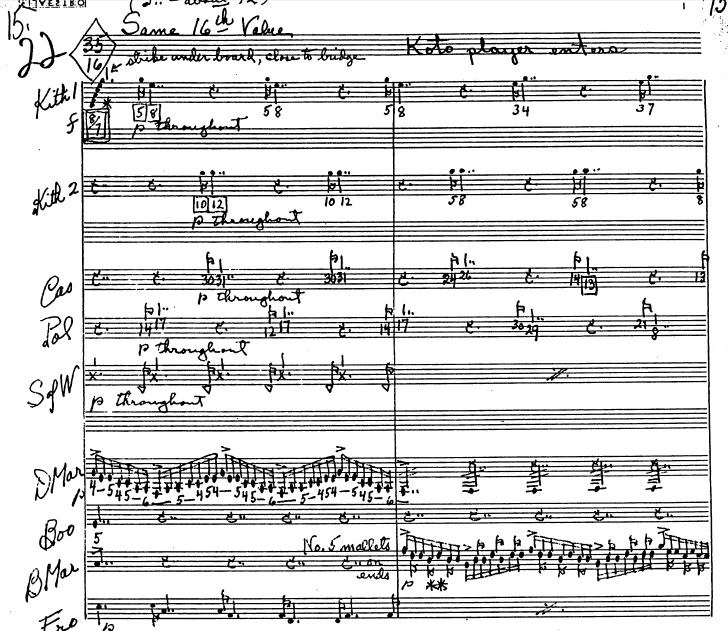Legacies & Impact
Legacies & Impact
Harry Partch and Lou Harrison have each left indelible legacies on 21st-century classical music – particularly American music.
The Harry Partch Foundation maintains stewardship of his instruments and performances that make use of them. Paul Simon (of the well-known American folk duo Simon and Garfunkel) actually used a handful of Partch’s instruments in writing and recording music for his 2016 album Stranger to Stranger. The Harry Partch Estate Archive in Urbana holds many documents and artifacts relating to his life’s work, including scores, films, and writings. The contemporary classical ensemble Musikfabrik in Köln, Germany, even commissioned a full set of replicas of all of Partch’s instruments in 2012, and have since performed many of his works, including Delusion of the Fury. Perhaps most importantly, Partch was the first American microtonal composer to achieve respect and acclaim, paving the way for the use of microtones in later music by such figures as Ben Johnston, Terry Riley, and Alexandra Du Bois.
 MusikFabrik's production of Partch's Delusion of the Fury
MusikFabrik's production of Partch's Delusion of the Fury
Lou Harrison’s music continues to be regularly performed to this day. Prominent American composer John Luther Adams, who won the Pulitzer Prize for Music in 2014, cites Harrison as a critical mentor and inspiration. He is especially important to the world of music for percussion instruments, having pioneered the expansion of percussion ensembles to include found objects and non-Western instruments. However, evaluating the legacies left by Partch and Harrison is a complicated matter – they are certainly not well-known, even to many avid listeners of classical music. Why is this the case? There are many overlapping factors at play here, including issues of marginality and originality, idiosyncrasy, accessibility, and institutional and governmental support for the arts.
 Partch's unique tablature-based notation
Partch's unique tablature-based notation
The most obvious factor limiting the spread of Partch and Harrison’s music is its impracticality; to perform something such as Delusion of the Fury or Suite for Violin and American Gamelan, you need an orchestra’s worth of custom-built instruments. Partch’s notation presents further difficulties. Rather than using the customary staff and noteheads, Partch often notated music using his own unique system (which resembled tablature) making it harder for a lay musician to perform. Another issue is accessibility. Since Partch and Harrison wrote using just intonation and instruments very different from those used to perform, say, a Beethoven symphony, their music often sounds strange upon a first hearing. If they’re paying to attend a performance, audiences may prefer to hear something more conventional.
Another interesting factor to consider are cultural differences between the United States and Europe: namely, the lack of support for the arts by institutions and the government in the United States as compared to most European countries. One might argue that the United States is at fault for Partch and Harrison being unknown to most Americans, seeing as the government does not promote awareness of its country’s great artists through performances or exhibitions of their work in the same way that other countries do. However, it is worth noting that part of the reason that Partch and Harrison were so individual is actually owed to the fact that they weren’t raised in an environment like Vienna. For example, Partch’s experiences as a transient during the Great Depression (when he couldn’t earn money from composing) informed much of the work from the middle period of his life.
In conclusion, Partch and Harrison were truly one-of-a-kind American composers – their uniquely unflinching commitment to their personal artistic visions sets them apart from many other 20th century composers, and they paved the way for much of the innovation currently happening in contemporary classical music.
Table of Contents
- Website Overview
- Background
- First Experiments
- Developing Styles
- Mature Incarnations
- Legacies & Impact || You Are Here!
- Bibliography